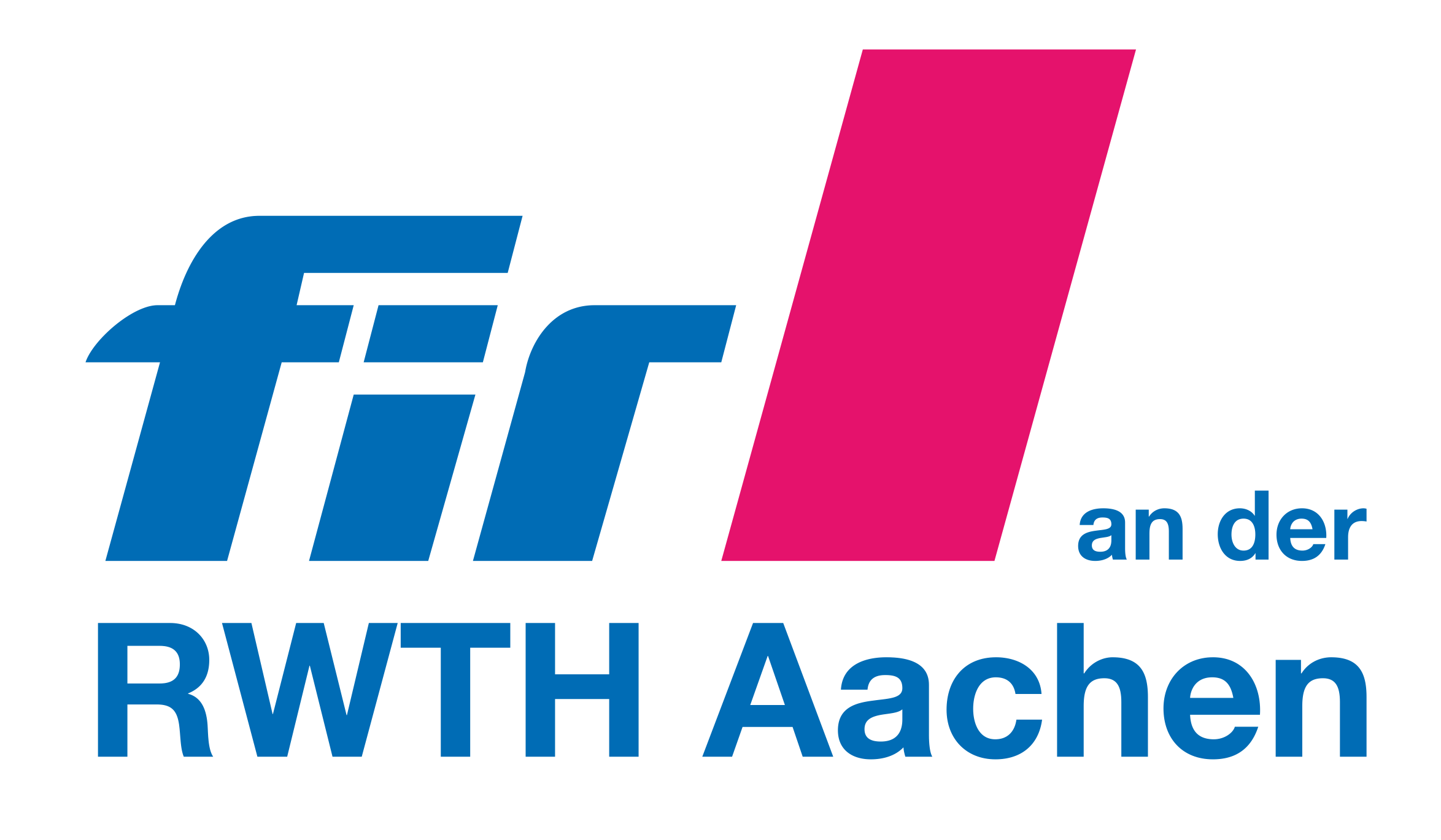Research Activities at FIR
Here you can find a list of research projects which are or have been carried out by FIR:
Please filter the list according to the criteria that are relevant to your inquiry.
Smart Logistic Grids
Development of a risk management system

Smart Logistic Grids aims to develop a risk management system, which offers better action alternatives within supply chain networks on the basis of improved information availability and smooth integration of various supply chain partners. An integrated model of adaptable logistics networks will be developed in order to reach extended strategic, tactical and operational planning and regulation of supply chain logistics. The model will set the basis for the evaluation of disorders and provide appropriate interference suppression. A prototype of the risk management system will be implemented in the form of a supply chain operations room and a global supply chain event cloud as part of the Smart Logistics Cluster at RWTH Aachen University.
Smart Logistic Grids aims to develop a risk management system, which increases efficiency and resilience of entire supply chain networks by offering better action alternatives within these networks on the basis of improved information availability and smooth procedural integration of various supply chain partners. The project focuses on an intermodal, real-time disposition in order to reduce CO2 emissions, safe transportation costs and improve delivery reliability within the logistics networks. The transport sector is responsible for more than 20 % of German CO2 emissions. 70 % of the emissions within this sector are caused by road transport. Regarding to various prognoses freight traffic will have increased by more than 80 % by 2050 compared to the situation in 2005. These figures emphasize the importance of reducing CO2 emissions in the transportation of goods. On the other hand, considering the high delivery reliability requirements due to todays’ just-in-time deliveries, disturbances in logistics networks can have significant impact on transportation costs. Traffic related delays are one of the most common reasons for penalty payments which may be imposed if violating service-level-agreements.
Target of the research project Smart Logistic Grids is therefore the development of methods and systems for a holistic evaluation and optimization of global logistics networks. The following aspects are part of the research project:
- A holistic evaluation approach for adaptable logistics networks as well as a concept for a continuous optimization of agile logistics networks
- An integrated model of adaptable logistics networks for an extended strategic, tactical and operational planning and regulation of supply chain logistics (modeling of disturbances as complex process and environment events; development of methods for the evaluation of interference suppressions and for the design of a risk management system)
- A supply chain operations room and a global supply chain event cloud (processing of real time information exceeding existing approaches of the supply chain event management; developing logistics regulation rather than logistics planning and controlling)
Key aspect of the project is a real time data collection in the form of an event cloud, displaying complex process and environment events of global logistics networks. Timely information regarding disturbances and risks enable the implementation of robust planning mechanisms in the supply chain operations room, where disturbances like bottle necks or environmental catastrophes can be recognized and assessed automatically. Action alternatives will not only be evaluated with regard to economic aspects but also regarding resource efficiency of intermodal transport networks. In this way both, CO2 emissions as well as high transportation costs caused by disturbances can be reduced significantly.



